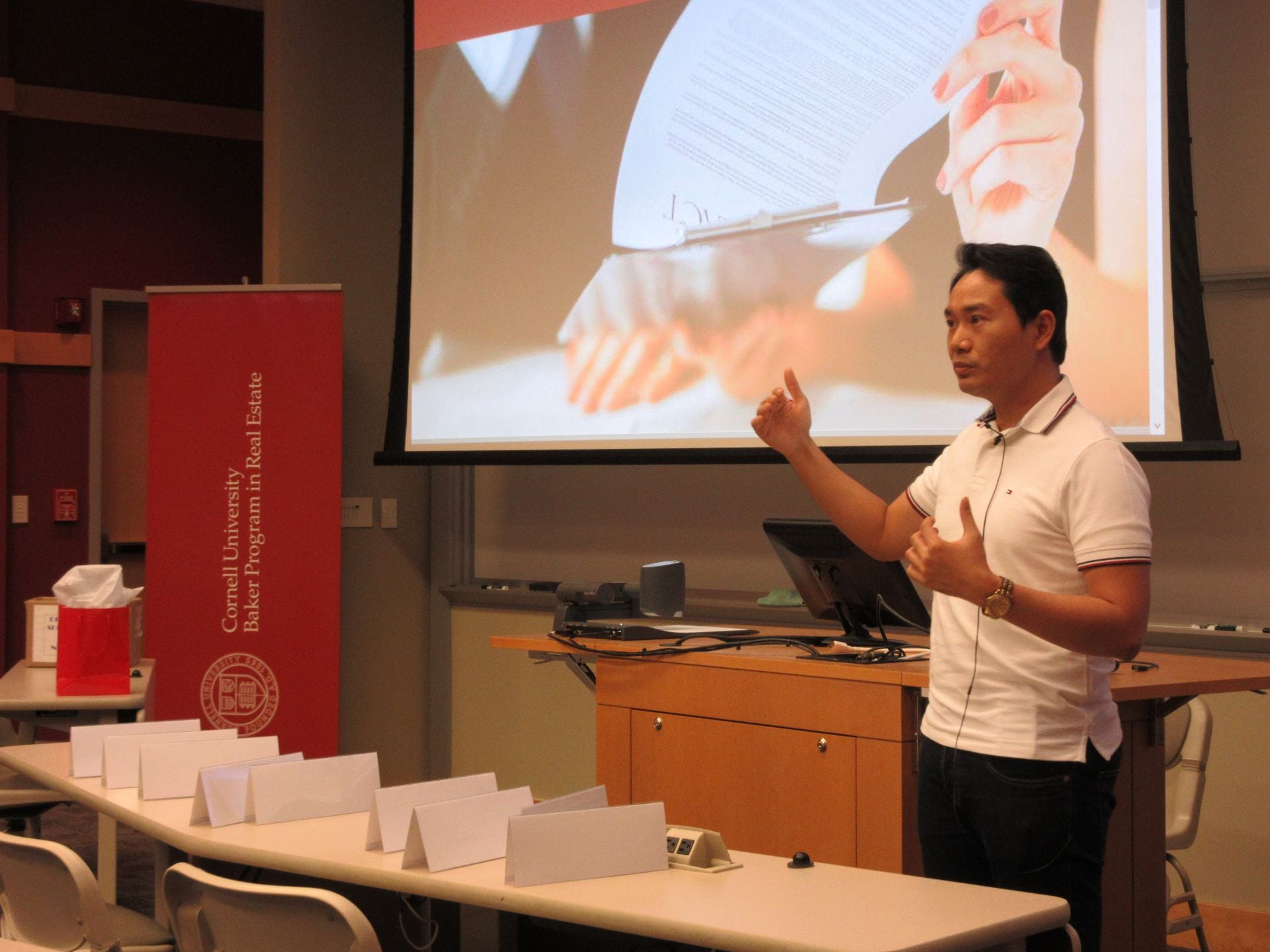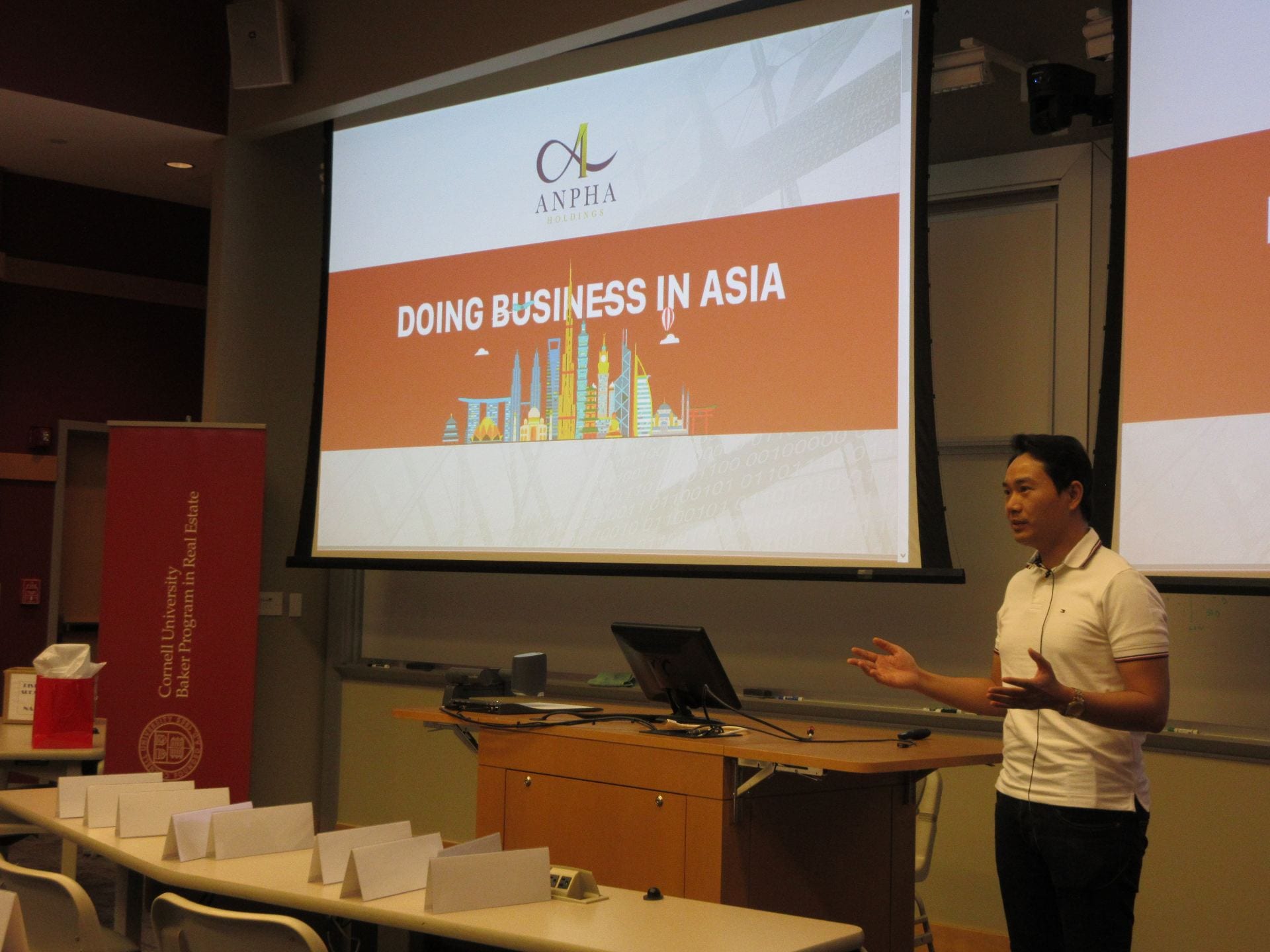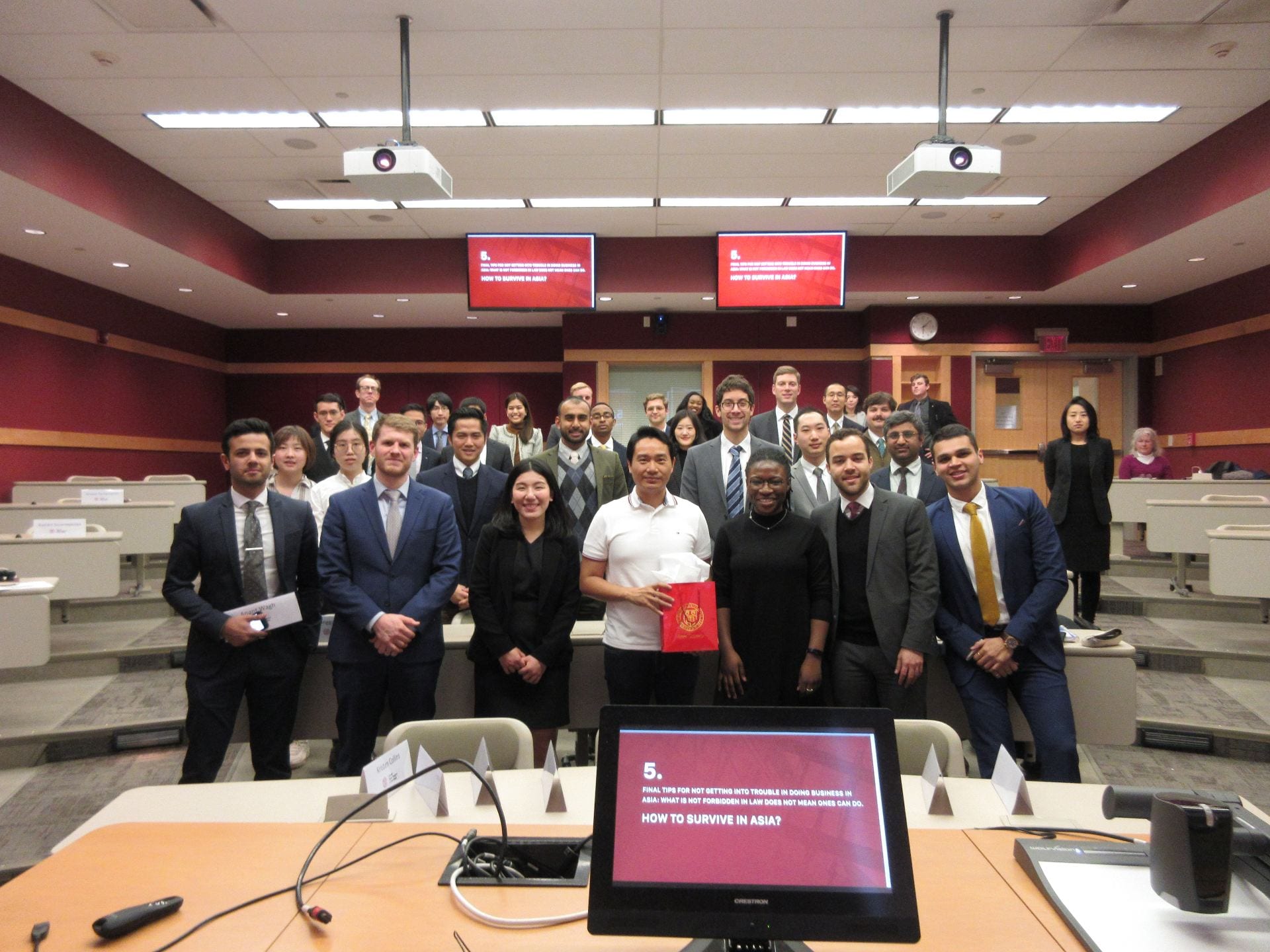
On February 21, 2019, the Cornell Baker Program in Real Estate welcomed Michael Dang MMH ‘07, President of Anpha Holdings and Founder of M.I.K. Corporation, as part of its Distinguished Speaker Series. Anpha Holdings and M.I.K. Corporation are leading luxury real estate development and consultancy firms based in Vietnam that have developed thousands of luxury condominiums, villas, and homes in Hanoi, Ho Chi Minh City, Phan Thiet, and Phu Quoc. M.I.K. corporation also has significant beachfront landbank holdings, some of which will soon be resorts operated by IHG, Melia, Hyatt, Hilton, Starwood, Marriott, and Radisson. While Michael’s current focus is on Vietnam, he has experience in real estate investments and operations in over 125 cities of 25 countries dating to his time with CapitaLand Group and Philips Electronics in Singapore.
Michael’s presentation focused on his experience doing business across Asia for more than 15 years. In addition to his above roles, Michael served as CEO of FutaCorp, a diversified firm with $2.5 billion of assets including real estate as well as a luxury long-distance bus line with the largest fleet in Vietnam. He was also previously the Group CIO of Tuan Chau Group, which has 14 subsidiaries operating in the hospitality, tourism, entertainment, cruise-line, and real-estate industries. Earlier in his career he was the CEO/President of Sacomreal, a leading real-estate developer in Vietnam, and a member of the BOM of Sacombank Group, the largest financial group in Vietnam.

Michael explained to the students how he is bullish on doing business in Asia due to the incredible growth that the area has experienced over recent decades as well as the significant opportunity available in countries that have only recently opened up to outside investment, such as Myanmar. However, according to Michael, to be successful, international investors seeking to transact business in Asia must be aware of at least four considerations. First, outsiders must have a carefully crafted long-term investment plan. Michael explained how it can be very difficult to extract capital from a number of Asian countries, particularly China, and that generally investors must have an investment horizon of at least 10 years.
Second, international investors must visit and familiarize themselves as much as they can with the country and specific area in which they seek to invest. Reading investment reports or other accounts will not suffice, according to Michael. Strong cultural differences both within and among the many countries in Asia make it difficult to accurately assess the investment environment from afar.
Third, because of these cultural differences, any outsider seeking to transact business in Asia must be humble and find the right local business partner that is familiar with the area and culture. International investors who enter an Asian market thinking that they have superior knowledge and capabilities will learn difficult lessons, according to Michael. When selecting local business partners, Michael prioritizes trust and finding companies with complementary abilities. The strength of these relationships is crucial and can often be more important than any contractual terms.
Fourth, international investors can be surprised to learn that written contracts often do not carry a lot of weight in many Asian countries. It is not uncommon for businesses to ignore contract terms either because they did not understand or did not care to take the time to understand the terms at execution or because they are so well-connected that they are unconcerned about the consequences. Moreover, enforcing a contract through litigation is often an illusory remedy as it can take years for an action to work its way through the legal system and many courts will rule in favor of local businesses and individuals over international investors. Finally, Michael also cautioned that, unlike in many western countries where violations of laws are clearly set forth in statutes and regulations, just because something is not forbidden by law in many Asian countries does not mean that one can do it.

The Cornell real estate community enjoyed Michael’s presentation and would like to thank him for sharing his time and insights as part of its Distinguished Speaker Series. It was a pleasure to have Michael on campus, and we wish him and his enterprises continued success.
